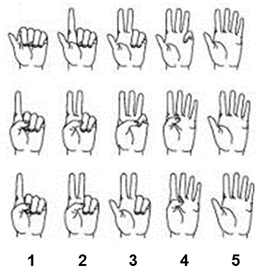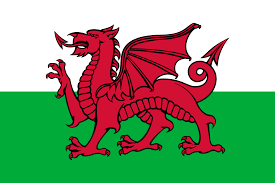Available Products
Number of topics: 3
 By the end of this course learners will:
By the end of this course learners will:
- Understand the key stages of development children may go through within maths, relating to numbers
- Recognise how to support number with the needs of the unique child
- Recognise how to support number with enabling environments
- Recognise how to support number with positive relationships
- Learn different ways to integrate number into other areas of learning and areas of the setting through these approaches.
Who should complete this course?
Suitable for all early years practitioners working with young children in England. This course complements and builds on the knowledge provided in the Maths in Early Years for England and 'Let's look at...' Maths: Shape, Space and Measure courses.
Number of topics: 3
 By the end of this course learners will:
By the end of this course learners will:
- Understand the key stages of development children may go through within shape, space and measure
- Recognise how to support shape, space and measure with the needs of the unique child
- Recognise how to support shape, space and measure with enabling environments
- Recognise how to support shape, space and measure with positive relationships
- Learn different ways to integrate shape, space and measure into other areas of learning and areas of the setting through these approaches.
Who should complete this course?
Suitable for all early years practitioners working with young children in England. This course complements and builds on the knowledge provided in the Maths in Early Years for England and 'Let's look at...' Maths: Number courses.
Number of topics: 6
 By the end of this course you will:
By the end of this course you will:
- Discover what maths in the early years is
- Explore different teaching methods for different ages and stages of children in maths
- Discover the benefits of the continuous provision in supporting mathematical development
- Investigate different methods for observing, assessing and planning for maths across the different ages of children in the setting
- Utilise ideas in the setting to develop maths with the early years children
Who should complete this course?
Suitable for anyone who works in early years who works with children in their setting, e.g. nursery practitioners, pre-school practitioners, playgroup practitioners and childminders.
Number of topics: 3
 This online course is designed to equip nursery practitioners in England with the knowledge, understanding and skills to successfully support children’s mathematical development in their setting in this specific area of learning.
This online course is designed to equip nursery practitioners in England with the knowledge, understanding and skills to successfully support children’s mathematical development in their setting in this specific area of learning.
By the end of this course learners will:
- Learn the key theories and research relating to mathematical development in young children
- Understand brain development and cognitive development in young children and how this relates to mathematical development
- Understand the key areas and aspects of maths and how this relates to learning and development of children in the early years
- Understand how schematic behaviour in children can be supported and integrated into mathematical learning and development
- Be able to confidently observe, plan and assess for children’s mathematical development
- Practical ideas to implement maths in to everyday life incorporating children’s individual learning styles and interests
- Gain ideas and knowledge about how parents can support maths development in the home environment
- Identify signs of dyscalculia and how to support children with this condition
- Understand the requirements of the Early Years Foundation Stage (EYFS) relating to maths.
Who should complete this course?
Suitable for all level three qualified and above early years practitioners working with young children in England. It provides background information, research from key theorists and schemas relating to maths. Also included are interactive activities, photographs, videos, handouts and quizzes to embed knowledge which link to practice.
Number of topics: 3
 This online course is designed to equip nursery practitioners in Wales with the knowledge, understanding and skills to successfully support children’s mathematical development in their setting in this specific area of learning.
This online course is designed to equip nursery practitioners in Wales with the knowledge, understanding and skills to successfully support children’s mathematical development in their setting in this specific area of learning.
By the end of this course learners will:
- Learn the key theories and research relating to mathematical development in young children
- Understand brain development and cognitive development in young children and how this relates to mathematical development
- Understand the key areas and aspects of maths and how this relates to learning and development of children in the early years
- Understand the importance of maths in the Foundation Phase
- Understand how schematic behaviour in children can be supported and integrated into mathematical learning and development
- Be able to confidently observe, plan and assess for children’s mathematical development
- Practical ideas to implement maths in to everyday life incorporating children’s individual learning styles and interests
- Gain ideas and knowledge about how parents can support maths development in the home environment
- Identify signs of dyscalculia and how to support children with this condition.
Who should complete this course?
Suitable for all early years practitioners working with young children in Wales. It provides background information, research from key theorists and schemas relating to maths. Also included are interactive activities and quizzes to embed knowledge which link to practice.
Number of topics: 5
 By the end of this course learners will be able to:
By the end of this course learners will be able to:
- Explain why outdoor play is important for children’s health, learning and development
- Identify and evaluate their current practice with regards to the outdoor learning environment
- Describe how to support number in the outdoors
- Describe how to support shape, space and measure outdoors
- Use different natural resources, seasons and weather types to support mathematical learning in young children.






